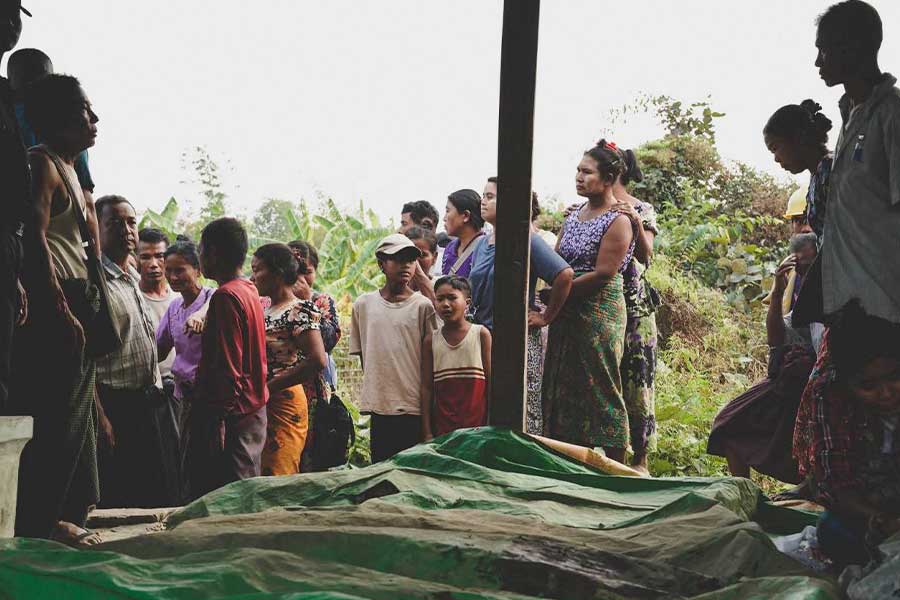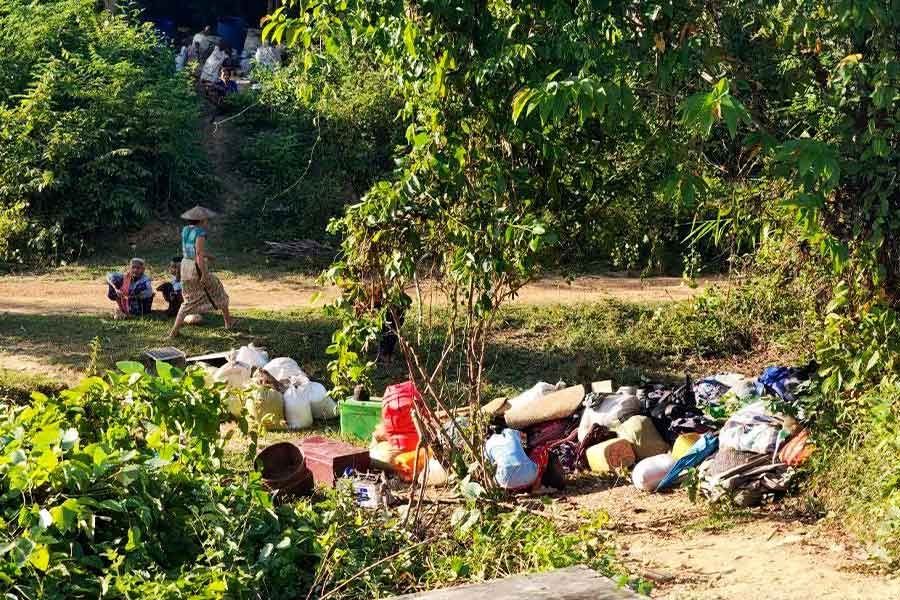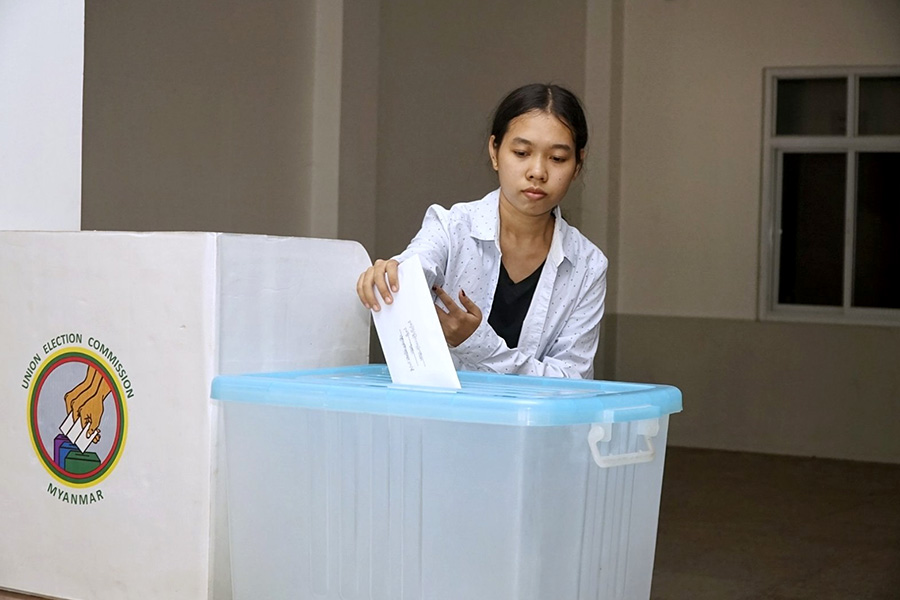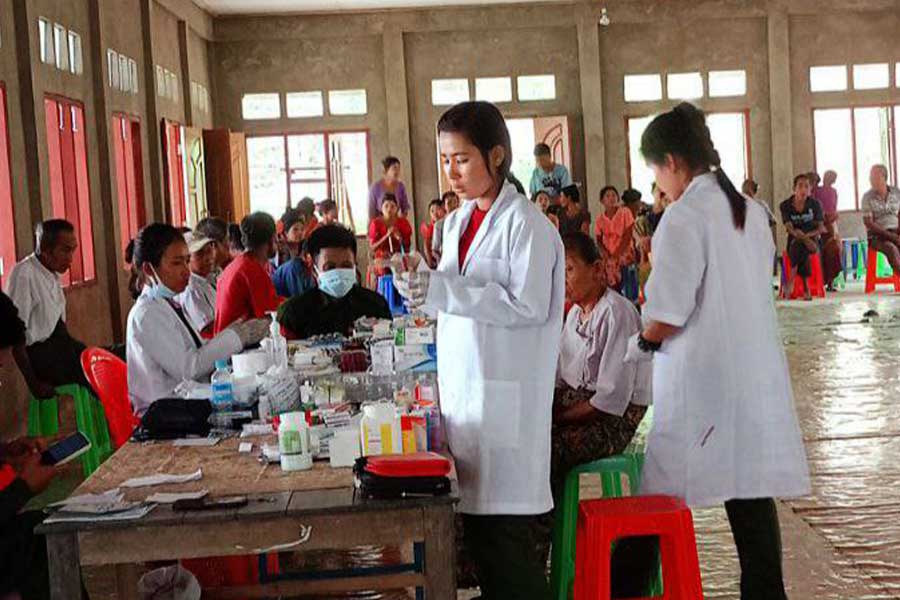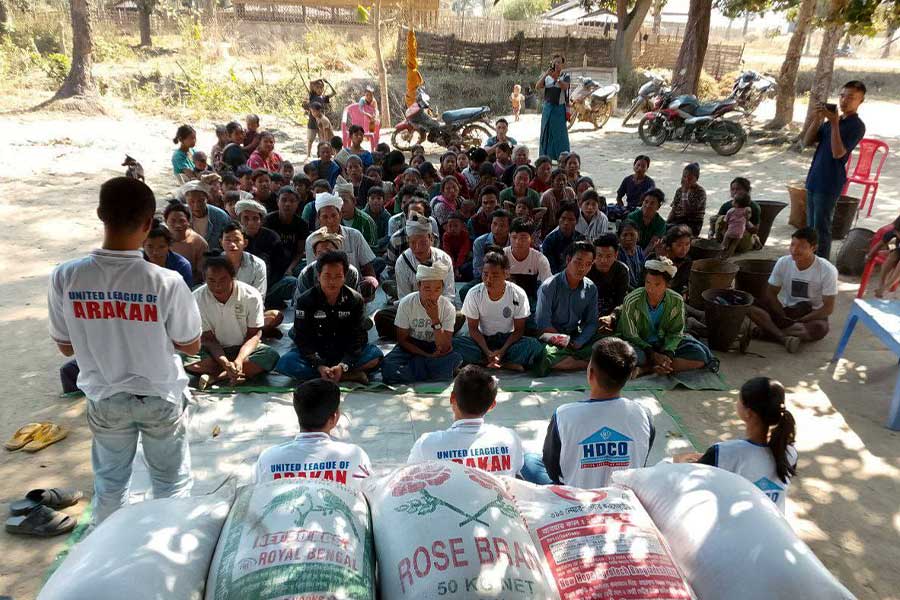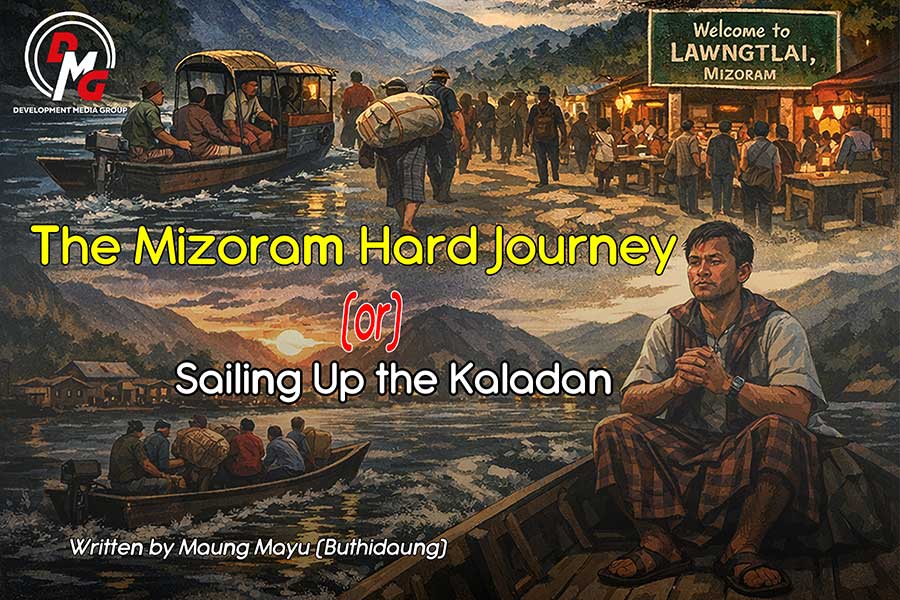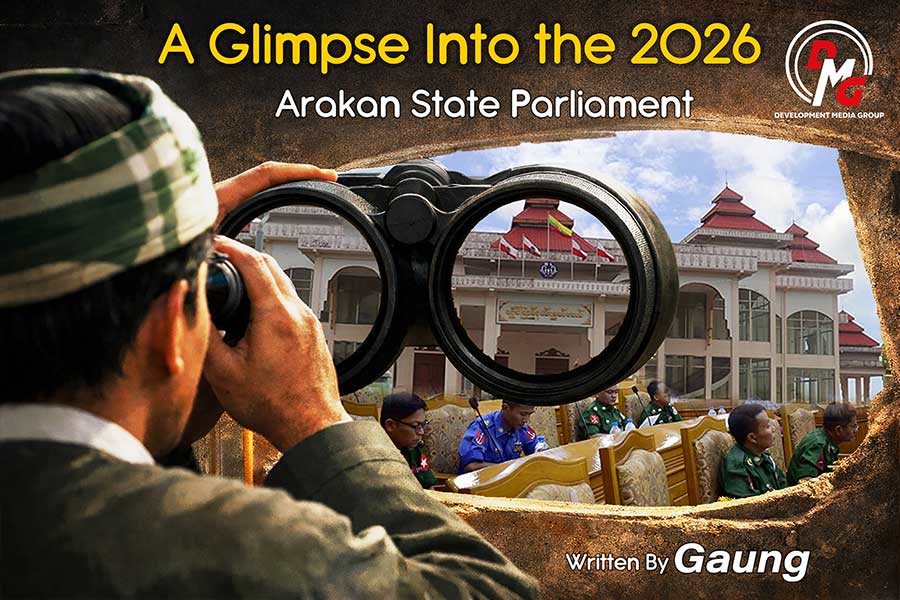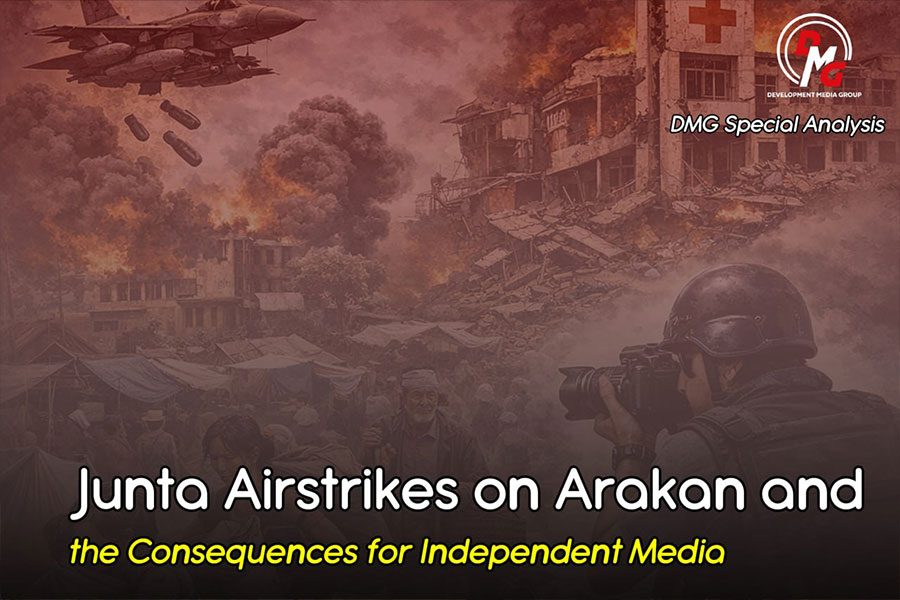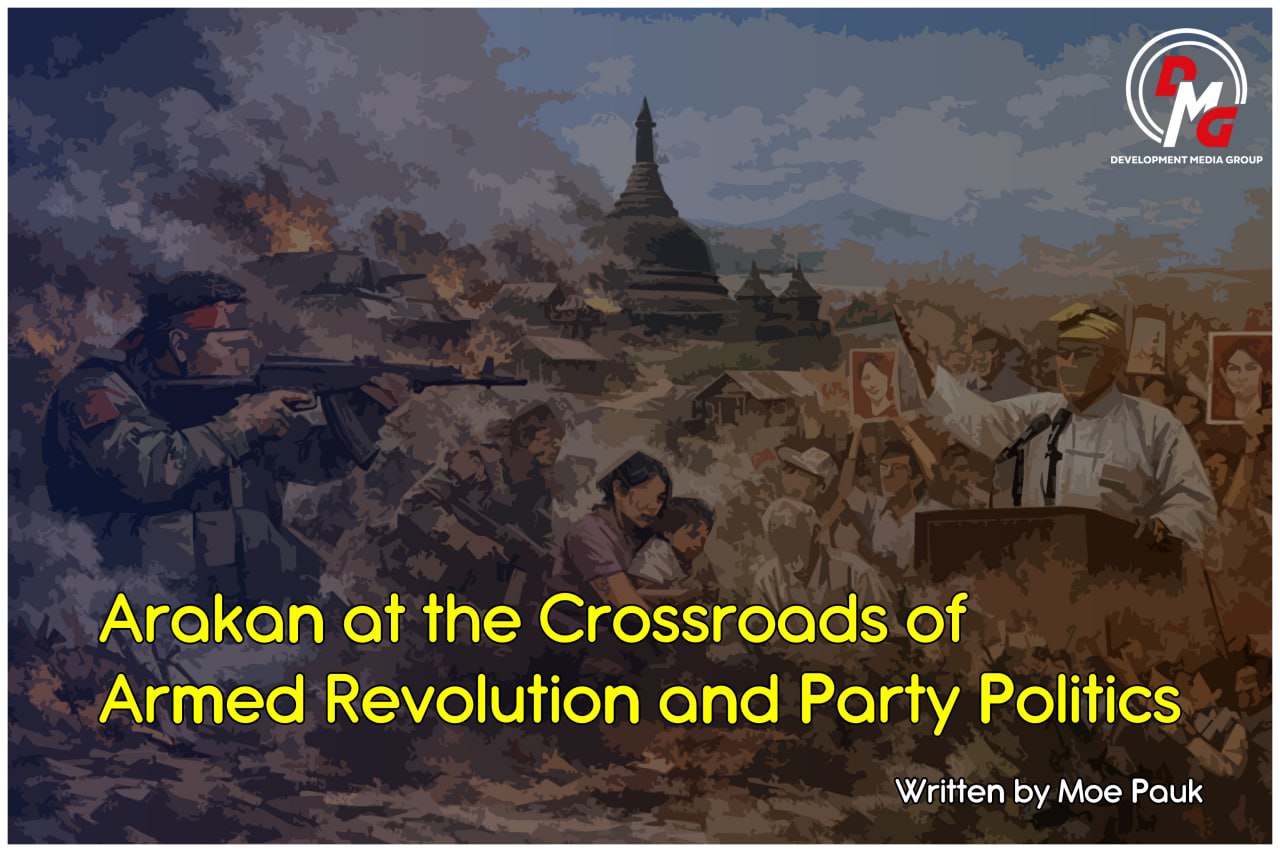- 15 mass casualty incidents from regime airstrikes reported in Arakan State since 2023
- Kyaukphyu IDPs forced to flee again amid junta airstrikes and artillery attacks
- New Diplomatic Movements Between Bangladesh’s New Government and the Arakan Public Administration
- Junta claims over 24 million ballots cast in 2025 poll, cites strong youth turnout
- ULA expands HIV prevention, healthcare services for sex workers in AA-held areas
Can Myanmar Junta Hold a Meaningful Vote in 2023?
“If the military regime wants to hold elections in Arakan State, it depends on the ULA/AA,” the ex-legislator told DMG. “At this time, there is no political solution, and the military council is facing armed revolution, no matter which election system is used to hold the election.”
03 Feb 2023
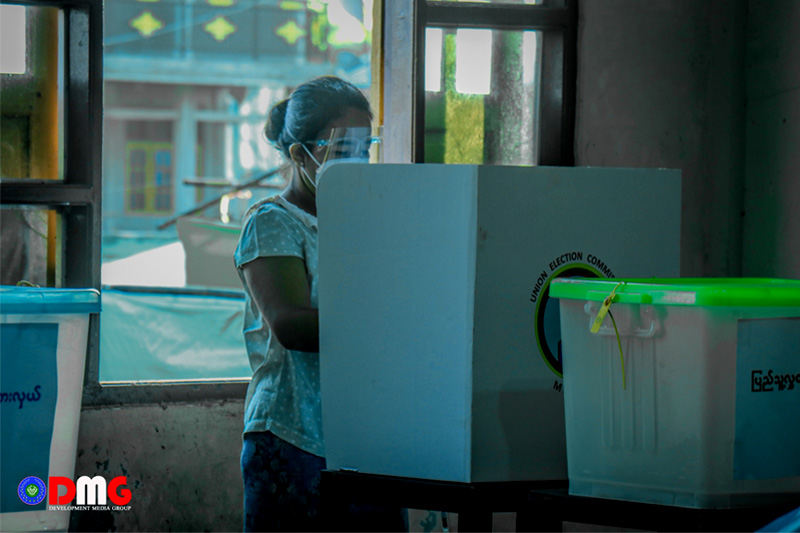
Written by Min Tun
It has been almost two years since the Myanmar military seized power from the country’s democratically elected government in a coup on February 1, 2021, citing alleged fraud in the 2020 general election.
Political observers say the regime will hold an election in 2023 as a matter of utmost priority, because it views the voting as a way out of Myanmar’s ongoing political crisis — and also a way to maintain its grip on power.
Critics of the planned poll abound
Arakanese politician U Pe Than said any election organised by the junta will be neither free nor fair, adding that Myanmar’s people and the international community have no faith in the regime or its purported desire to return democracy to the country. He nonetheless described the planned 2023 election as the military government’s “lifeline”, and said it would be held by any means necessary.
There are contrary views positing that an election this year is unlikely due to the armed conflicts that continue to rage across large swaths of the country, almost all of them pitting the junta against anti-regime forces.
Regardless, the junta-appointed Union Election Commission (UEC) has been auditing the assets of political parties, compiling voter lists, training commission staff and preparing polling stations. The regime has also introduced some changes to electoral laws and procedures. Junta chief Min Aung Hlaing has said the election will be held in August of this year.
This month, the regime began conducting a population census in townships across Arakan State to facilitate the compiling of voter lists.
A total of 6,940 enumerators divided into 1,290 teams were involved in conducting the census, Arakan State Administration Council (ASAC) spokesman U Hla Thein wrote on his Facebook page on January 10. (ASAC is the Arakan State-level subsidiary of Myanmar’s military regime.)
The Arakan State election commission says it is comparing the current population against previous voter lists, while also explaining the proportional representation (PR) electoral system to election commission members. The regime has said it will replace the previous first-past-the-post electoral system with PR in its controversial election to come.
“We are counting the people on the ground and making sure of their eligibility to vote,” said secretary U Thurein Htut of the Arakan State election commission.
A change from first-past-the-post to PR would significantly dilute the electoral strength of the National League for Democracy (NLD), which dominated the polls nationally in 2015 and 2020. Given the military’s guaranteed allotment of 25 percent of seats in Parliament, the benefits of a change to PR would almost certainly accrue to the regime and its proxy Union Solidarity and Development Party (USDP).
The Arakan Army and Elections
After almost two years of often-intense fighting that started in late 2018, the Myanmar military and Arakan Army observed a ceasefire in early November 2020, to make way for the general election slated for November 8 of that year.
But the poll had already been cancelled in parts of Arakan State due to the conflict, amid calls for the now-ousted National League for Democracy (NLD) government to organise voting in those areas. It was within this context that Japanese special envoy to Myanmar Yohei Sasakawa managed to mediate a ceasefire between the two sides.
Approximately three months after the ceasefire, the Myanmar military seized power. And while their truce largely held for more than a year, fighting between the two sides resumed in earnest in August 2022.
With the mediation of Sasakawa once again, the two sides agreed to an informal ceasefire on November 26. But the latest peace pact was not signed in black and white, and clashes could break out again at any time, AA spokesman U Khaing Thukha told a press conference on November 28.
In an exclusive interview with DMG, the AA spokesman declined to comment on the junta-organised election planned for later this year, but said elections held throughout the history of Myanmar had never brought about positive changes for Arakanese communities.
“It can’t be assumed that elections to be held in Bamar State [mainland Myanmar] will make [positive] changes to the lives of Arakanese people,” U Khaing Thukha told DMG in November.
Thousands of people were displaced by the fighting from August to late November of last year, dozens were killed or injured, and more than 300 were detained by the regime for alleged ties to the Arakan Army.
A 38-year-old Sittwe resident who asked that DMG not use her name — and who voted in all three of Myanmar’s general elections dating back to 2010 — said she has decided not to cast a vote in the poll currently being organised by the regime.
“We don’t like the election to be held by the junta. It won’t be fair. I don’t want to cast a vote, and I don’t have trust in it,” she explained.
Arakan State Politics
Despite their electoral victories in all three previous general elections in Arakan State held under Myanmar’s current Constitution (in 2010, 2015 and 2020), Arakanese political parties have not been able to form the state-level government due to the centralisation inherent in the military-drafted 2008 charter.
Those constitutional restraints have contributed to widespread voter ambivalence toward Arakanese political parties.
Many Arakanese people do not have trust in political parties contesting the junta-organised election, said Kyaukphyu resident U Tun Kyi.
“Arakanese political parties were not dutiful to the Arakanese people in solving the current crisis in Arakan State. It appears that they could not be bothered to handle the crisis. Arakanese political parties aren’t even able to offer a word of criticism about what is happening in the country right now,” he said.
Even if there are preparations underway behind the scenes, two of Arakan State’s most powerful political parties — the Arakan National Party (ANP) and the Arakan Front Party (AFP) — have shown little publicly to indicate that they are gearing up for a general election later this year. In contrast, the military’s proxy Union Solidarity and Development Party (USDP) in Arakan State has not been shy about its 2023 electoral ambitions.
According to Dr. San Shwe, chairman of the USDP’s Arakan State chapter, the party is explaining the proportional representation (PR) electoral system and its plans to local party members. Since early December, party leaders have met members in Thandwe, Manaung, Sittwe, Maungdaw and Kyaukphyu.
The current UEC — reconstituted entirely by the regime after it seized power in 2021 — has signalled that PR will replace the current first-past-the-post electoral system in this year’s planned election.
“We explained the instructions from the party headquarters, and party activities. We explained to them about PR. And party members will explain PR to the voters,” said Dr. San Shwe.
“We explained to them about the types of PR, such as open PR and closed PR. We still don’t know when the election will be held. For now, we only know that PR will be exercised in the proposed election,” he said.
The military regime has not yet revealed the specifics of which PR system will be used in the 2023 election.
Electoral Participation Uncertain
The ANP, which has established dominance in securing the ethnic Arakanese vote over the past two general elections, has not yet made any preparations regarding the forthcoming, junta-organised poll, according to party chairman U Tha Tun Hla.
He did not provide a clear answer when DMG asked whether the ANP would contest the election to be held by the military regime this year.
“We have not discussed and decided within the party about the election. Regarding the current situation in Myanmar, we believe that the political parties are still unable to engage in the political process,” he said.
DMG was not able to reach Dr. Aye Maung, chairman of the AFP, to find out his party’s most current attitude toward the junta-organised election. In an interview with DMG in October of last year, he said that in order to overcome Myanmar’s various crises, it would be necessary to go through elections, while adding that the AFP had not yet made any preparations for a poll in 2023.
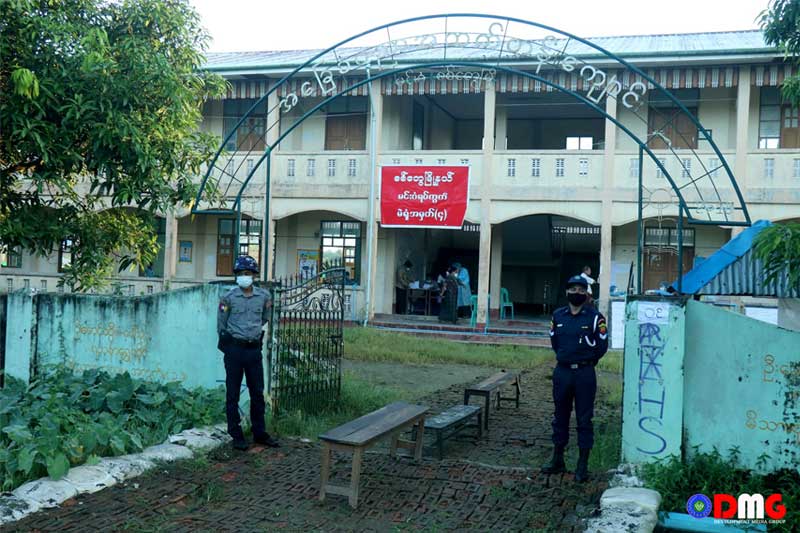
U Aung Thaung Shwe, a former Arakan State lawmaker representing Buthidaung Township, said he believes that even though the military council is making preparations for a nationwide vote this year, the blessing of the United League of Arakan/Arakan Army (ULA/AA) would be a determining factor in its success regionally.
“If the military regime wants to hold elections in Arakan State, it depends on the ULA/AA,” the ex-legislator told DMG. “At this time, there is no political solution, and the military council is facing armed revolution, no matter which election system is used to hold the election.”
After months of fighting that began in earnest in August, the AA observed an informal ceasefire with the Myanmar military on November 26, citing the need for a humanitarian truce. Local sources say the Myanmar military has been transporting weapons and ammunition to Arakan State during the informal ceasefire.
Locals are worried that the fighting will resume if the military continues to increase its military presence in Arakan State. If fighting resumes, there are reports that the military regime will not be able to hold elections in Arakan State.
ANP chairman U Tha Tun Hla noted that the military council is preparing for elections in Arakan State while there are two administrations serving the functions of government independently — and with tensions between them.
“The informal ceasefire in Rakhine [Arakan] State has not been consecrated by a strong political agreement, so the people are living in a situation full of anxiety,” he said.




